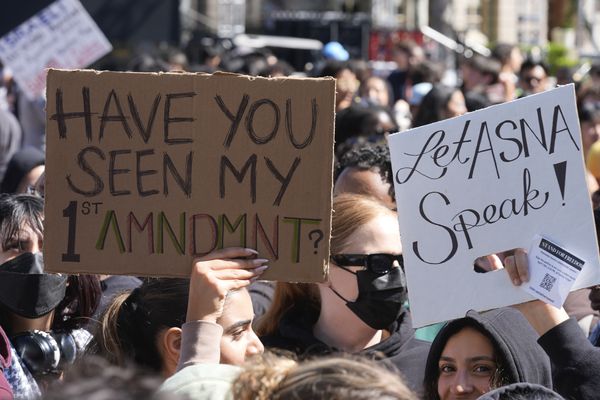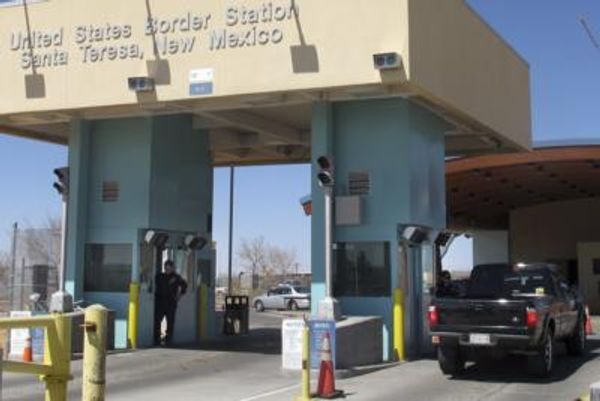
When Rob Manfred announced on Tuesday that regular-season games to start the season off would be lost, it highlighted a schism within the ownership ranks. To get labor talks back on course, Major League Baseball’s commissioner needs to figure out how to grab the wheel and get things back on course.
It may seem odd that in 2022, Major League Baseball is your father’s baseball. Or your father’s father’s baseball, but it is. For 26 years, there was labor peace in the game. Maybe Manfred didn’t have MLBPA executive director Tony Clark over for the holidays, but there was working order.
No, today feels like Bowie Kuhn’s era. The former commissioner of the game spent as much time chasing his own owners around as fending off Marvin Miller and the union for the players. Somehow, former owners like Ted Turner, Charlie Finley, and George Steinbrenner would fit right in with the current class of owners in Manfred’s midst.
Early in the marathon bargaining sessions in Jupiter, Florida between the league and MLBPA designed to try and end the lockout and avoid losing regular-season games, word started to filter in that a faction of the owners had wrested control. This group of hawks was portrayed as trying to break the union and were steadfast in not giving in.
By Thursday, that dynamic started to become clearer as Andy Martino of SNY reported that four owners refused to vote in favor of increasing the thresholds in the competitive balance tax (CBT), otherwise known as the Luxury Tax — a key sticking point in the negotiations. Then late in the evening, Evan Drelich of The Athletic dropped the bombshell that Arte Moreno (Angels), Ken Kendrick (Diamondbacks), Chris Illitch (Tigers), and Bob Castellini (Reds) were the four that objected to raising the CBT thresholds, first to $220 million – a bump of just $10 million from the threshold last season – and a large gap from the $238 million the players were seeking. When deputy commissioner Dan Halem delivered the league’s “last best offer” it was fully rejected by the players.
The four, by themselves, couldn’t hold a deal up – it takes 75% of the owners to approve any agreement – but it highlights the fissure between some low and mid-level revenue makers and those at the top.
While players have been vocal in their thoughts about the lockout, the league’s 30 owners have left the dirty work to Manfred with the public, so it’s not as if those four and others may speak publicly as to why they took the position. Yes, there is the undeniable in tamping down player compensation (according to The Athletic story the owners tried the indefensible tactic of including meal money and stipends in Luxury Tax payroll calculations), but there’s more.
After Rob Manfred spoke to the media regarding the cancellation of regular-season games on Tuesday, the MLBPA held their own press conference where Clark was joined by lead labor negotiator Bruce Meyer and several players, including Max Scherzer, now with the Mets. In it, Scherzer spoke directly about how the CBT was designed in spirit and what it has become.
“We look at the competitive balance tax as a breakaway spending mechanism,” Scherzer said. “We’re seeing it act as a salary cap.”
One of the worst kept secrets in baseball is that the CBT was initially created to slow the Yankees' free-spending ways, and wrapping it up as a mechanism for competitive balance was to prevent the obvious. It’s also acted as a cap with several clubs flirting with that $210 million threshold last year but not exceeding it.
Going back to the faction of owners that prevented progress on increasing the CBT thresholds in the next labor deal, it’s clear that a key component in that direction is centered on one club recently, and the potential for another going forward.
When the Dodgers landed an $8.5 billion media rights deal that kicked in after the 2013 season they quickly began overtaking the Yankees who have pulled back from going over the Luxury Tax in recent years. It was bad enough when George Steinbrenner was seemingly “buying championships” but here were the Dodgers aggressively chasing star talent and being in a position to win the World Series in multiple years. Since 2013, the Dodgers have exceeded the CBT threshold seven times (2013-17, 2019, and 2021) amassing nearly $150 million in penalties. Only the Yankees, with a whopping $340 million in penalties exceed them.


The Dodgers would have been bad enough for this group of hawks. Now, they have another aggressive owner in their midst.
Hedge fund magnate Steven Cohen completed the $2.4 billion purchase of New York Mets in 2020. Whether it’s assumed or made clear through Cohn’s conversations, he’s seen as someone willing to spend to win, CBT thresholds be damned. Indeed, Max Scherzer’s mega three-year, $130 million deal with the Mets right as the league headed into the lockout gives some fuel to that narrative.
It’s clear that the hawks that have been outed see a potential arms race between the Dodgers and Mets as a case of “breakaway spending.” Not raising the CBT thresholds would make penalties more painful, and looking back at proposals the league had earlier in the bargaining process, they wanted to see penalties for exceeding the thresholds increase further, creating an even harder cap that would inflict additional pain should the Dodgers, and now Mets, spend freely.
To all of this, Manfred has to gain some control back. His predecessor Bud Selig was not perfect by any means, but he was viewed as a “great communicator” given that he had been an owner of the Milwaukee Brewers and had a gift of keeping the owners in lockstep.
One can speculate who leaked the information to SNY and The Athletic. It’s possible it was one of the owners; it could be anybody. It’s also possible that the four names leaked could pull back. No matter what, the days of old where the commissioner was chasing his tail in order to keep the owners in line is back. How long the fissure remains will come with time… and pressure. After all, when you go back and look at those Luxury Tax penalties, there’s some irony in them. Two of the clubs revealed as not wanting to increase the CBT threshold have exceeded them prior: the Angels (2004) and Tigers (2008, 2016-17).







